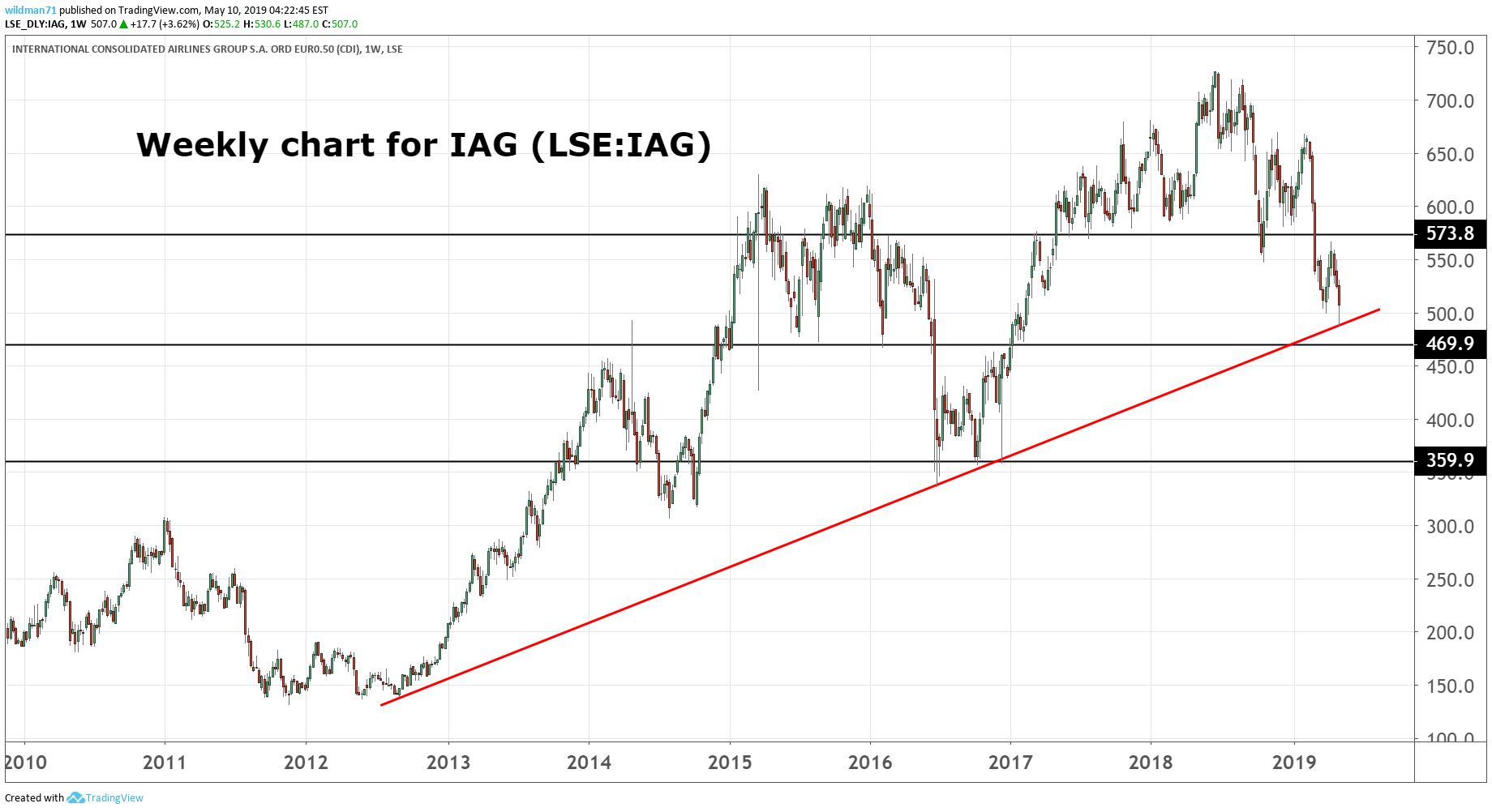
Is two-year low the nadir for IAG shares?
Investors have taken these results as a cue to pick up cheap stock, betting that the worst is over.
In the context of its financial year, the first quarter will probably be one which International Consolidated Airlines Group (LSE:IAG) will want to forget.
As can be seen from the demise of several smaller airlines over recent times, fortunes can turn on a sixpence in this highly cyclical industry. Whilst IAG's problems are not existential, the first quarter has highlighted some of the challenges.
Virtually across the board, costs have increased with fuel and employee costs having moved significantly higher. This has fed through to a pre-tax profit which shows a 90% decline year-on-year and an adjusted earnings per share metric which has fallen 57.5%.
Foreign exchange difficulties and even the timing of Easter also contributed to a weak operating quarter, during which time the company's shares were truly buffeted after an admission that the previously announced free cash flow figure required clarification.
Whether this precipitous drop marks the nadir of performance remains to be seen. The second quarter appears to have opened on a rather brighter note, while full-year guidance remains intact.

Source: TradingView Past performance is not a guide to future performance
Despite the first quarter challenges, overall revenues posted a 5.9% increase and net debt also reduced in the period. Largely through its flagship British Airways brand, the company remains cash generative and indeed confident of future prospects, as evidenced by the previous announcement of a special dividend, which gives a projected yield of 6.5%, let alone the ongoing share buyback programme.
In addition, IAG also has access to the lower end of the market via its budget airline presence, whilst ongoing industry consolidation could present further opportunities. The shares now trade on an undemanding multiple although potential investors will be mindful of some of the external factors which airlines have traditionally faced, ranging from the likes of freak weather conditions to acts of terrorism.
The initial reaction to the update is positive, but needs to be seen in the context of a share price which has fallen 30% over the last year, as compared to a 6.4% drop for the wider FTSE 100 index, and which has dipped 26% in the last three months alone. Even so, the market consensus of the shares remains at a ‘buy', anticipating rather brighter times ahead.
These articles are provided for information purposes only. Occasionally, an opinion about whether to buy or sell a specific investment may be provided by third parties. The content is not intended to be a personal recommendation to buy or sell any financial instrument or product, or to adopt any investment strategy as it is not provided based on an assessment of your investing knowledge and experience, your financial situation or your investment objectives. The value of your investments, and the income derived from them, may go down as well as up. You may not get back all the money that you invest. The investments referred to in this article may not be suitable for all investors, and if in doubt, an investor should seek advice from a qualified investment adviser.